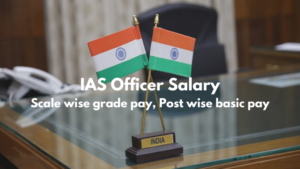28 March 2024 : The Hindu Editorial Notes PDF
The Hindu EDITORIAL
28-March-2024
1. WTO’s investment facilitation negotiations are not illegal
|
Topic: GS2 – International relations – Important International institutions, agencies and fora – their structure, mandate Relevant for UPSC due to implications on international trade governance, India’s stance on WTO negotiations, and global economic diplomacy. |
| Context |
| ● The article discusses the non-adoption of the investment facilitation for development (IFD) agreement at the World Trade Organization’s 13th Ministerial Conference, focusing on India’s concerns regarding investment’s inclusion in WTO and the process followed. |
Background of IFD Agreement at WTO MC13:
- At the 13th Ministerial Conference (MC13) of the World Trade Organization (WTO) in Abu Dhabi, the agreement on investment facilitation for development (IFD) faced non-adoption despite prior negotiations.
- Negotiations for IFD began in 2017 on a plurilateral basis through the Joint Statement Initiative involving 70 countries.
- Despite opposition from countries like India, the IFD agreement aimed to create binding provisions to facilitate investment flows, with support from around 120 out of 166 WTO member countries.
India’s Concerns and Stance:
- India, along with South Africa, played a crucial role in preventing the IFD agreement’s inclusion in the WTO rulebook.
- India’s concerns primarily revolve around whether investment should be part of the WTO framework and the process followed for integrating the IFD agreement into the WTO rulebook.
Investment vs. Trade:
- India argues that investment is not inherently trade and may not always lead to cross-border trade, contradicting the viewpoint that trade and investment are closely linked.
- While modern trade agreements like RCEP and CPTPP include detailed investment provisions, India’s stance questions the mandate for negotiating investment-related matters within the WTO.
Process Concerns:
- India contends that there was no mandate for negotiations on investment within the WTO, citing decisions from previous ministerial conferences, including the 2004 General Council decision and the 2015 Nairobi ministerial decision.
- The debate revolves around whether the negative mandate to launch negotiations on new issues applies to facilitation aspects of investment and whether it extends to plurilateral negotiations like the IFD agreement.
Importance of Plurilateral Agreements (PAs) and India’s Defensive Approach:
- PAs like the IFD agreement are crucial for overcoming the deadlock in WTO decision-making by addressing the complexities of international trade.
- India’s defensive stance towards PAs, despite its growing economic stature, is questioned, suggesting that it should reconsider its approach to PAs like the proposed IFD Agreement.
Conclusion:
- The non-adoption of the IFD agreement at WTO MC13 highlights ongoing debates regarding investment’s role within the WTO framework and the necessity of PAs for addressing contemporary trade challenges.
- India’s defensive stance on PAs prompts reconsideration given its emerging economic prominence.
| About WTO |
|
● The World Trade Organization (WTO) is an international organization established in 1995, succeeding the General Agreement on Tariffs and Trade (GATT). ● It aims to facilitate trade between nations by providing a platform for negotiating trade agreements and resolving disputes. ● The WTO has 164 member countries And 25 observer governments as of March 2024, encompassing the majority of the world’s trading nations. ●Its key principles include non-discrimination, transparency, and promoting fair competition. ●The organization operates through various agreements, including the General Agreement on Trade in Services (GATS) and the Agreement on Trade-Related Aspects of Intellectual Property Rights (TRIPS). ●WTO negotiations cover a wide range of areas such as agriculture, services, and intellectual property, aiming to reduce barriers to trade. ● Dispute settlement mechanisms are a crucial aspect of the WTO, allowing members to resolve conflicts through a structured process. ● Critics argue that the WTO’s policies disproportionately benefit developed nations and multinational corporations, exacerbating global inequalities. ● The organisation faces challenges in adapting to changing global economic dynamics, including the rise of digital trade and growing protectionist sentiments in some member countries. ● Despite criticisms and challenges, the WTO remains a central institution in global trade governance, playing a vital role in shaping the rules of international commerce. |
| Importance of Plurilateral Agreement (PAs) |
|
Advantages: ● Flexibility: PAs allow like-minded countries to negotiate agreements on specific issues without the need for consensus from all WTO members, enabling faster progress. ● Tailored Solutions: Countries can address particular concerns or pursue objectives that may not have universal support, allowing for more tailored solutions to complex issues. ● Innovation: PAs can serve as testing grounds for innovative approaches to trade and governance, fostering experimentation and learning. ● Efficiency: Negotiations within PAs can proceed more efficiently compared to multilateral negotiations, which often face challenges in accommodating diverse interests. Concerns: ● Exclusivity: PAs risk creating divisions within the WTO by excluding non-participating members, potentially leading to fragmentation of the global trading system. ● Undermining Multilateralism: Over-reliance on PAs may undermine the principles of multilateralism and the inclusive nature of the WTO, weakening its effectiveness as a forum for global trade governance. ● Lack of Transparency: Negotiations within PAs may lack transparency compared to multilateral negotiations, raising concerns about the democratic legitimacy of resulting agreements. ●Risk of Marginalisation: Countries not part of PAs may feel marginalised or disadvantaged, leading to tensions and undermining broader cooperation within the WTO framework. ●Inconsistent Standards: PAs may result in inconsistent standards across different agreements, complicating trade relations and creating regulatory challenges for businesses operating in multiple markets. |
|
PYQ: What are the key areas of reform if the WTO has to survive in the present context of ‘Trade War’, especially keeping in mind the interest of India? (250 words/15m) (UPSC CSE (M) GS-2 2018) |
| Practice Question: Discuss India’s stance on the inclusion of investment facilitation within the WTO framework, and its implications for global trade governance. (250 Words /15 marks) |
2. Preventing a China-Taiwan conflict
|
Topic: GS2 – International Relations – Bilateral Relations Critical for UPSC due to implications on India’s foreign policy, regional stability, and strategic partnerships amidst evolving geopolitical dynamics. |
| Context |
| ● The article examines India’s stance on the Taiwan conflict, emphasizing its commitment to maintaining the status quo and exploring policy options to prevent escalation. |
India’s Stance on Taiwan Conflict:
Maintaining the Status Quo:
- India prioritises maintaining the current status quo, with Taiwan as a self-governing territory that avoids declaring independence.
- Bilateral trade between India and Taiwan has grown substantially, with discussions for a potential free trade agreement underway.
- Collaborations between Indian and Taiwanese companies, such as the partnership between Powerchip Semiconductor Manufacturing Corporation and the Tata Group, signify the economic interests tied to peaceful relations across the Taiwan Strait.
Costs of Chinese Aggression:
- Any Chinese aggression against Taiwan would have dire consequences for India, disrupting global trade and causing significant economic fallout.
- Estimates suggest that a conflict over Taiwan could incur costs exceeding 10% of global GDP, severely impacting India’s economy, particularly sectors reliant on Chinese and Taiwanese supplies.
- The potential for a broader conflict between China and the U.S. poses further risks, including escalation along the India-China border and disruptions to global industrial capacity.
Long-term Impact on India:
- A Chinese victory in a conflict over Taiwan could shift the regional balance of power, undermining existing security arrangements and potentially emboldening China in territorial disputes.
- India’s strategic interests align with maintaining a stable regional order, which could be jeopardised by a Chinese triumph.
- While India is not a formal U.S. ally, it relies on American support for military modernization and seeks a benign strategic environment.
Policy Options for India:
- India possesses various policy tools to deter Chinese aggression, including leveraging international law, crafting narratives opposing aggression, and coordinating diplomatic efforts.
- Economic measures to de-risk dependencies on China and Taiwan, alongside active information campaigns and potential military support for U.S. forces, are among the available options.
- Implementing these policies not only serves to prevent conflict but also enhances India’s strategic position vis-à-vis China and strengthens partnerships, particularly with the U.S.
Advancing India’s Interests:
- These policy choices align with India’s broader strategic goals, providing leverage in its competition with China and fostering deeper cooperation with the U.S.
- They also offer opportunities for Indian leadership on the global stage, particularly among countries in the Global South, in deterring Chinese aggression.
- Despite potential repercussions from China, such actions are deemed essential for safeguarding India’s expanding interests and ambitions, outweighing the costs of inaction.
| India – Taiwan Relations: |
|
Importance of Taiwan for India: ● Economic Ties: Taiwan is a significant economic partner for India, especially in sectors like electronics, IT, and manufacturing. ●Technological Cooperation: Collaboration with Taiwan can enhance India’s technological capabilities, fostering innovation and competitiveness. ● Strategic Counterbalance: Strengthening ties with Taiwan provides India with a strategic counterbalance against China’s influence in the region. ● Democratic Values: Both India and Taiwan share democratic values, fostering potential cooperation in international forums to uphold democratic principles. Challenges: ● China’s Opposition: India’s engagement with Taiwan faces opposition from China, which sees Taiwan as a part of its territory. ● Diplomatic Sensitivities: India’s adherence to the One-China policy complicates its official engagements with Taiwan. ● Economic Dependence: India’s economic dependence on China might deter robust engagement with Taiwan due to fears of antagonising Beijing. ● Global Recognition: India’s limited recognition of Taiwan as an independent entity restricts the scope of official engagements. Way Forward: ● Enhanced Economic Cooperation: India can deepen economic ties with Taiwan through increased trade, investments, and technology transfer. ● People-to-People Contacts: Promoting cultural exchanges and academic collaborations can strengthen people-to-people ties between India and Taiwan. ● Strategic Partnerships: India can explore strategic partnerships with like-minded countries that support Taiwan’s international recognition. ● Balanced Approach: India should maintain a balanced approach, engaging with Taiwan pragmatically while managing sensitivities with China. ● Multilateral Forums: Utilising multilateral forums to engage with Taiwan indirectly can help advance mutual interests while avoiding direct confrontation with China. |
| Practice Question: Discuss India’s strategic imperatives and policy options concerning the Taiwan conflict in the context of evolving regional dynamics. (150 Words /10 marks) |
3. Supreme Court makes a case against pre-trial restraint on journalistic content
|
Topic: GS2 – Indian Polity – Judiciary This topic is crucial for UPSC as it addresses freedom of speech, judicial restraint, and media ethics in defamation cases. |
| Context |
| ● The news concerns the Supreme Court cautioning against granting pre-trial injunctions on media defamation suits, emphasizing protection of freedom of speech. |
Supreme Court’s Caution Against Pre-trial Injunctions:
- The Supreme Court issued an order cautioning courts against granting pre-trial injunctions against the media in civil suits for defamation.
- The Court emphasised that such injunctions could severely impact freedom of speech and impair the public’s right to information.
- It overturned a Delhi lower court’s order directing Bloomberg to remove an allegedly defamatory article concerning Zee Entertainment Enterprises Ltd.
Reiteration of Three-fold Test:
- The Supreme Court restated the standard three-fold test for granting interim injunctions, emphasizing the need for judicial officers to analyze the facts and provide reasoned decisions.
- The three limbs of the test include determining the existence of a prima facie case, assessing the balance of convenience, and considering whether not granting the injunction would cause irreparable harm to the plaintiff.
Protection of Journalistic Expression:
- The Court underscored the constitutional mandate to protect journalistic expression, highlighting the importance of upholding freedom of the press in cases involving media.
- It warned against mechanically applying the three limbs of the test and emphasised the necessity of recording reasons for granting injunctions.
Questionable Judicial Orders:
- The order highlighted three types of judicial orders that impose questionable restrictions on journalistic publications: outright gag orders, omnibus prior restraint orders, and pre-trial injunctions against specific media houses.
- These orders may contradict the common law principle in Bonnard vs Perryman, which requires the court to assess whether the content is defamatory and cannot be justified during trial.
SLAPP Tactics and Economic Influence:
- The Court raised concerns about Strategic Litigation/Lawsuit against Public Participation (SLAPP), a tactic used by influential entities to stifle public criticism.
- It warned against granting early injunctions in prolonged trials, likening them to a ‘death sentence’ for the material to be published.
Conclusion:
- The Supreme Court’s order serves as a reminder of the fundamental principles of law, particularly regarding freedom of speech and journalistic expression.
- It underscores the need for judicial officers to carefully consider the implications of pre-trial injunctions on public debate and the media’s role in society.
- Additionally, the order highlights the dangers of SLAPP tactics and the importance of upholding constitutional mandates in defamation cases involving the media.
| Issues with individuals obtaining pre-trial injunctions against media |
|
What does it mean by pre-trial injunctions? ● Pre-trial injunctions are court orders issued before a trial begins, typically restraining a party from taking certain actions. ●In the context of media defamation suits, they may prevent the publication or dissemination of allegedly defamatory content until the case is resolved in court. Issues with Affluent Individuals Obtaining Pre-trial Injunctions Against Media: ● Threat to Freedom of Press: Affluent individuals can abuse their financial power to suppress unfavourable media coverage, limiting the freedom of the press. ● Inequality in Access to Justice: Pre-trial injunctions favour the wealthy, creating a disparity in access to justice where affluent individuals can silence media outlets with legal threats. ●Chilling Effect on Investigative Journalism: Fear of expensive legal battles and injunctions can deter journalists from pursuing investigative reporting on powerful figures, undermining the public’s right to information. ●Undermining Public Interest: Pre-trial injunctions may prevent the exposure of wrongdoing or issues of public interest, shielding affluent individuals from accountability. Way Forward: ● Legal Reforms: Implement regulations to prevent misuse of pre-trial injunctions, ensuring they are used judiciously and in the public interest. ● Legal Aid: Provide support for media organisations facing legal challenges, ensuring they can defend themselves against injunctions. ● Transparency: Require greater transparency in legal proceedings involving injunctions, allowing the public to scrutinise decisions and hold both the judiciary and wealthy individuals accountable. ● Public Awareness: Educate the public about the importance of press freedom and the potential consequences of allowing affluent individuals to silence media outlets. |
| Practice Question: Discuss the implications of pre-trial injunctions on media freedom and the public’s right to information, as highlighted by the Supreme Court. (150 Words /10 marks) |
For Enquiry

28 March 2024 : Daily Current Affairs

28 March 2024 : The Hindu Editorial Notes PDF

28 March 2024 : PIB Summary for UPSC

28 March 2024 : Indian Express Editorial Analysis

IAS Officers’ Salary, Perks & Allowance in 2024

27 Mar 2024 : Daily Answer Writing

27 Mar 2024 : Daily Current Affairs Quiz

27 March 2024 : Daily Current Affairs

27 March 2024 : Indian Express Editorial Analysis

27 March 2024 : PIB Summary for UPSC
Daily Current Affairs 28 March 2024 : Daily Current Affairs Daily Current Affairs
28-March -2024- Top News of the Day
1. India TB Report-2024: Missing cases shrinking,…
March – The Hindu Editorial 28 March 2024 : The Hindu Editorial Notes PDF The Hindu EDITORIAL
28-March-2024
1. WTO’s investment facilitation negotiations are not illegal
Topic:…
March 2024 PIB 28 March 2024 : PIB Summary for UPSC PIB Summary for UPSC
28-March -2024
1. Government’s Borrowing plan for first half of FY 2024-25
Topic:…
Indian Express 28 March 2024 : Indian Express Editorial Analysis Indian Express Editorial Analysis
28-March-2024
1. Holes in social security
Topic: GS2 – Governance…
Blogs Upsc IAS Officers’ Salary, Perks & Allowance in 2024 Topics Covered: IAS Salary, IAS Salary Per Month, Salary before & After 7th Pay commission, IAS Salary…
mains answer writing 27 Mar 2024 : Daily Answer Writing Mains Answer Writing
27-March-2024
Q1) Indian institutions of higher education feature low in international…
Daily Quiz 27 Mar 2024 : Daily Current Affairs Quiz 27 Mar 2024 : Daily Quiz…
Daily Current Affairs 27 March 2024 : Daily Current Affairs Daily Current Affairs
27-March -2024- Top News of the Day
1. Employment scenario in India grim, says…
Indian Express 27 March 2024 : Indian Express Editorial Analysis Indian Express Editorial Analysis
27-March-2024
1. Don’t blame it on wokeness
Topic: GS2 – Social Justice…
March 2024 PIB 27 March 2024 : PIB Summary for UPSC PIB Summary for UPSC
27-March -2024
1. As part of overseas deployment to ASEAN countries, ICG Ship Samudra…




